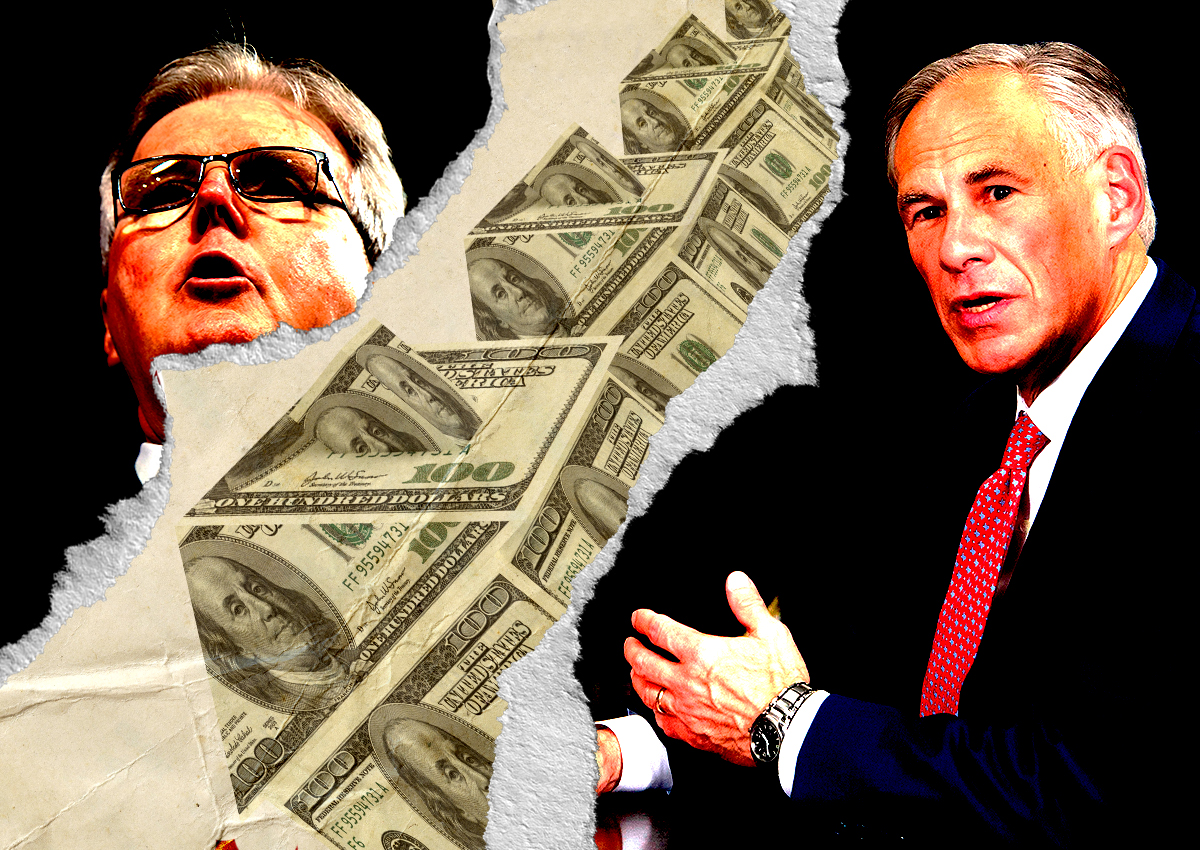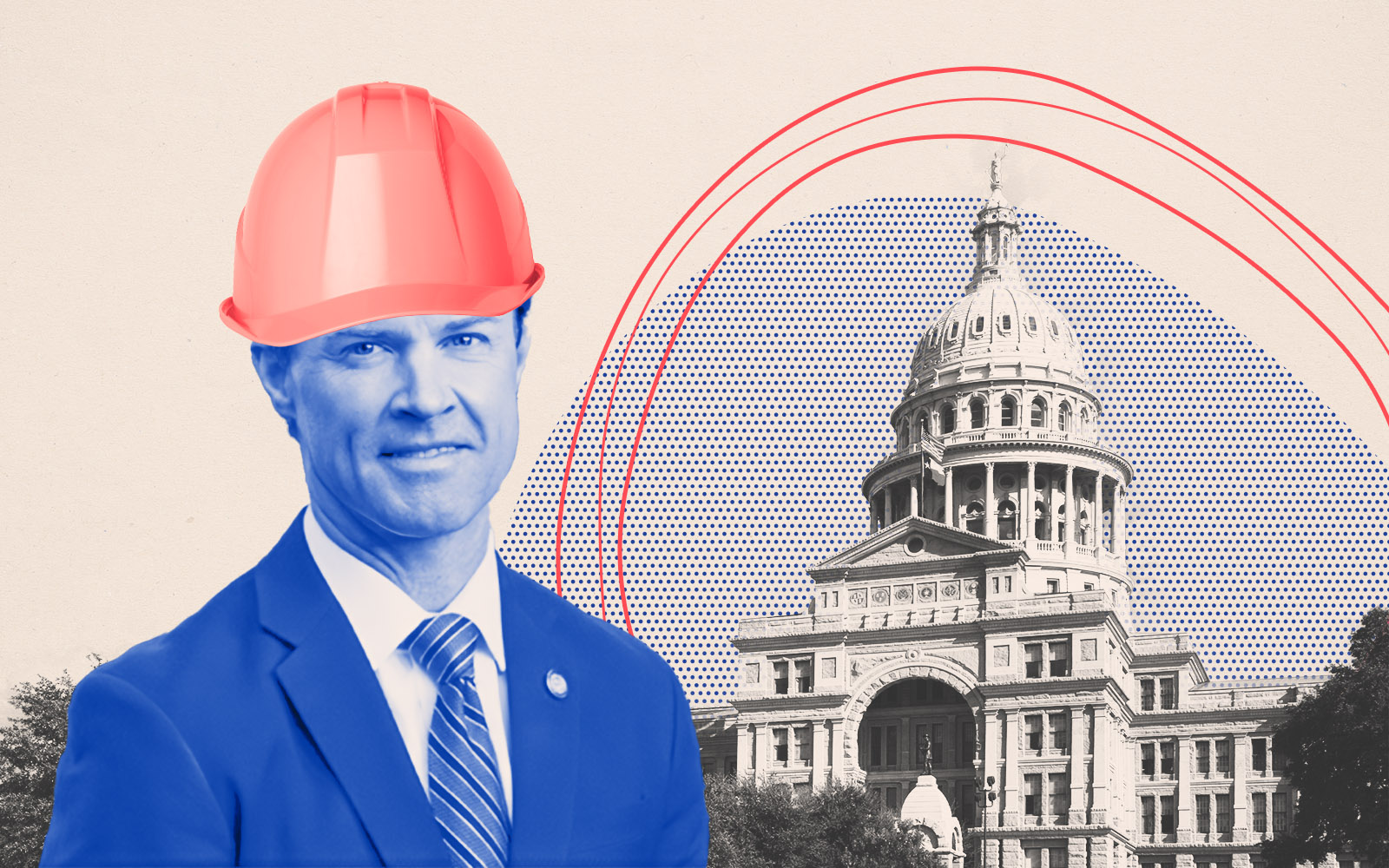In Texas’ long-running property tax cage match, Gov. Greg Abbott is a new fighter.
For the entire five-month legislative session, the governor stayed out of the public debate as House Speaker Dade Phelan and Lt. Gov. Dan Patrick, who controls the State Senate, battered each other. Time and again, negotiations between the Texas House and Senate fell apart over the issue of appraisal caps.
In a state with a notoriously opaque appraisal process and some of the heaviest property taxes in the country, lawmakers are hopelessly conflicted on how best to distribute the billions of dollars budgeted for property tax relief. And last week, seemingly out of nowhere, the main sticking point in the disagreement suddenly disappeared as the governor stepped into the arena.
As the political brinkmanship continues to escalate, the future of property taxes in Texas hang in the balance — the difference between the plans could mean billions of dollars to commercial landlords.
Currently, appraised property values in Texas cannot increase by more than 10 percent in a year. Phelan wanted to slash that to 2 percent, drawing pushback from researchers and Patrick, who feared that lower caps would cause a host of unintended consequences.
Critics allude to California’s Proposition 13, which limits annual appraisal increases in the state to 2 percent as long as ownership stays the same. That incentivizes homeowners to hang on to their properties for as long as possible to avoid reassessments. It also sticks new homeowners with an outsized portion of the tax burden, because their assessed values have been updated to more closely match actual values.
“Caps are not as effective as you might think on the surface,” said Lynn Krebs, a researcher with the Texas Real Estate Research Center at Texas A&M University who recently published a paper analyzing the possible effects of an appraisal cap in Texas.
Even if a cap keeps an appraised value artificially low, districts can simply hike their rates to raise more money. Or they might increase other taxes — sales taxes and gasoline taxes being frequent targets — to make up for the shortfall.
All that on top of the ways caps tilt the playing field in favor of older homeowners and disincentivize mobility in the housing stock.
“Although Californians decided that unequal treatment of homeowners is justified, Texans need to carefully weigh these long-term effects resulting from tightened caps,” the paper concludes.
Total war
As the regular legislative session closed at the end of May, Abbott called lawmakers back for a special session and specifically demanded a property tax relief bill. For the first time, the governor offered a preference, saying he favored direct-rate compression. The proposal would shrink school districts’ property tax rates over time until they reach zero.
The House went back to work the next day and passed a proposal to cut the property taxes school districts levy on homes by about 16 cents for every $100 of a property’s taxable value. The plan was strikingly direct and completely capitulated to the governor’s wishes.
It would not increase the homestead exemption, something Patrick has said repeatedly he wants to do. (A previous version of the bill passed by the House would’ve boosted the exemption to $100,000 of a home’s value.) It did remove plans to lower appraisal caps, the policy over which the House and Senate have spent the last five months arguing.
During the regular session, Texas Realtors, a powerful real estate lobbying body in the legislature, supported bills to increase the homestead exemption and compress the school property tax rate.
On the very first day of the special session, the House waived procedural rules to allow the property tax bill to fly through the chamber. Within a few hours, the bill had been passed, and Phelan adjourned the House for the rest of the session.
Where the appraisal caps went is anyone’s guess.
“It’s hard to read at the moment, for obvious reasons,” said James Henson, director of the Texas Politics Project at the University of Texas at Austin. It could be that Phelan and Abbott are more ideologically flexible on policy, so long as a deal gets done, while Patrick has been a die-hard supporter of the homestead exemption for the whole session, Henson suggested. Or it could be a matter of personal conflicts between the state’s top three Republicans overruling policy considerations.
A representative for Speaker Phelan did not respond to a question about why caps were removed from the House’s latest plan.
Regardless of its cause, the agreement’s result has caused what Henson called on a recent podcast “the most open conflict we’ve seen between the governor and lieutenant governor since they were both elected.”
In the trenches
With House representatives back in their home districts, Patrick and the Senate are all alone in Austin, essentially unable to make any edits to the bill they’ve been handed, as any changes would require approval from the House.
As a result, Patrick held a press conference last week in which he ripped into the House’s plan and challenged Abbott to a “Lincoln-Douglas debate.” He argued in favor of the Senate plan, which would spend 70 percent of the $17.6 billion set aside for property tax relief and expand the homestead exemption to $100,000.
“The math is pretty simple. If you’re gonna eliminate all property taxes, you’ll have no money left to do anything. This is a joke,” Patrick said. He also suggested that the governor might not be familiar with the details of his own proposal.
Since the House proposal focuses exclusively on compressing tax rates, which apply to all types of property owners, Patrick argued that the plan unfairly benefitted commercial property owners at the expense of homeowners.
“Homeowners weren’t thinking about reducing property taxes for shopping centers and offices and every other complex you can think of, people out of state who own property here,” Patrick said.
According to Patrick’s estimates, homeowners would receive between $1,250 and $1,400 per year under the Senate’s plan, and just $740 under the House plan.
Even if the House stays home for the remainder of the 30-day special session, it can’t hide from the problem. Abbott has no problem bringing them back.
“I’ll call special session after special session after special session until a solution is reached,” he said.
Read more



